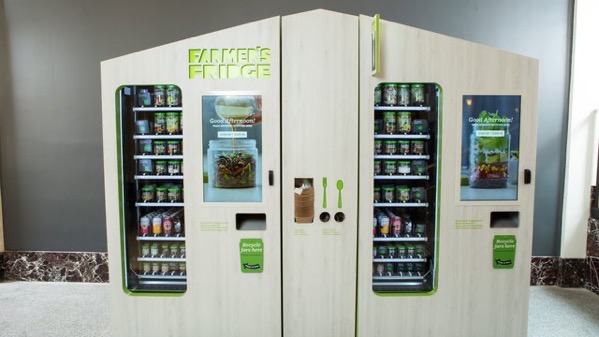Entrepreneurs often avoid looking too much in the details of regulations and laws when launching their businesses. Otherwise, they would mostly remain in their current position and would avoid launching a business. Indeed, as most regulations have been put in place for traditional business, they don’t really fit the market or product innovations and regulators are rarely quick (or willing) to provide information about how a new venture should apply to the current rules in the case of new usage. While this is true in many tech sectors (from banking with Neo-banks such as Revolut or N26 facing issues in the US) or in mobility (see Uber facing London regulators), this is also true in FoodTech. Here are two cases of food startups having troubles coping with regulations:
A vending machine is a restaurant
Farmer’s Fridge, a Chicago based startup, notably funded by Danone has recently faced regulators in New York. The startup markets vending machines containing fresh salads in places such as offices. Farmer’s Fridge had to stop its 55 machines while negotiating with the local authorities. As it is selling fresh foods, each machine has been assimilated to a restaurant and has to apply and pay for a licence ($280). This cost around $150,000 to the company, both in legal fees and in lost sales. The good news for Farmer’s Fridge vending machines is that, even if now considered as restaurants, the rules have been bent and its machines will not have to provide a restroom.

Robotic deliveries are ok in San Francisco but only for research and if you have a permit
Robotic delivery for food is still in its infancy. This does not prevent some regulators to consider the potential impact that such robots could have on the streets. As soon as 2017, the board of supervisor of San Francisco voted to restrict their use. Companies have to apply for a permit and it is basically prohibited to use them for actual delivery (but authorised to use them for research purposes).







